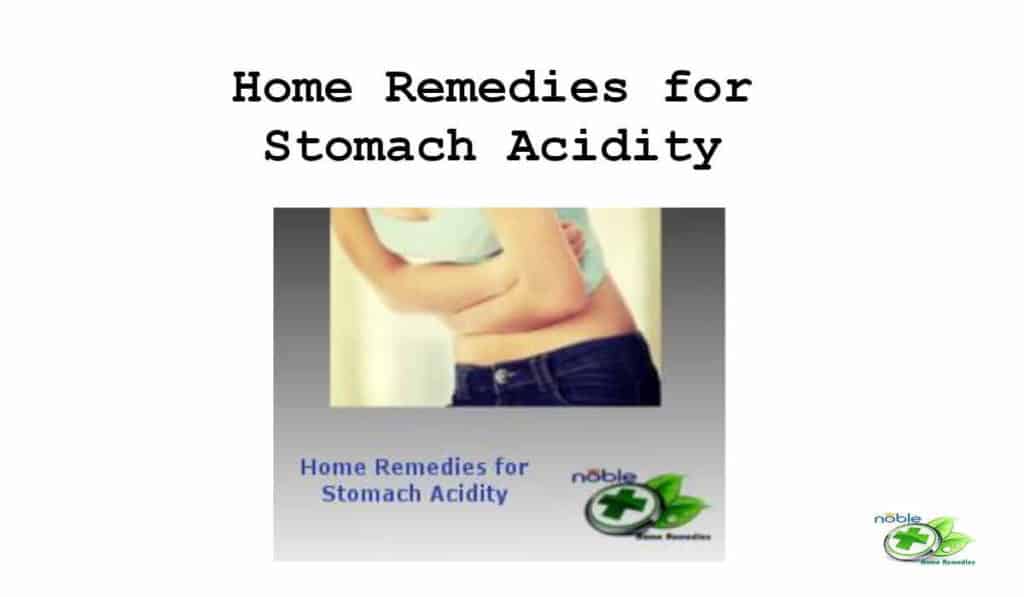Epsom Salt Bath for Bacterial Infection: How It Works!
The achiness, swelling, chills, fatigue, and fever of a bacterial infection can make you feel completely wiped out. All you want to do is rest in bed until it passes. But what if soaking in a warm, magnesium-rich bath could help you find relief?
Epsom salt baths have been used for generations to help the body relax and recover. The high levels of magnesium in Epsom salts have potent anti-inflammatory powers that can reduce swelling and discomfort. Recent studies have also shown magnesium sulfate to be antimicrobial, fighting against bacteria to speed up healing.
In this article, you’ll discover how an Epsom salt bath for bacterial Infection can be used as a natural home remedy. We’ll cover:
- How Epsom salt baths help treat infections
- The science behind their antibacterial benefits
- When you should use them for the best results
- Step-by-step instructions for a rejuvenating soak
The best part is that Epsom salt baths are completely safe and free of side effects. So next time you notice the first signs of an impending bacterial illness, consider this soothing, mineral-rich bath therapy. It could help you feel better faster and avoid more severe symptoms. Let’s look at how it works!
What is an Epsom Salt Bath?
An Epsom salt bath is a bath taken in water that contains magnesium sulfate, better known as Epsom salt. Epsom salts are made up of magnesium, sulfur, and oxygen.
When you soak in an Epsom salt bath, the magnesium sulfate gets absorbed through your skin. The magnesium helps draw toxins out of your body by osmosis. It also reduces inflammation, easing aches and pains.
The sulfates in Epsom salt may also have antimicrobial effects. Bathing in magnesium sulfate solution significantly improved skin infections. It also disrupts the enzyme pathways bacteria rely on.
The benefits of taking an Epsom salt bath may include:
- Pain relief: Magnesium reduces inflammation and muscle soreness caused by bacterial illness. This provides soothing relief when every movement hurts.
- Promotes healing: Magnesium regulates cell function needed for healing wounds and damaged tissues from infection. The sulfur also helps rebuild new proteins.
- Antibacterial: The sulfates in Epsom salts have antibacterial effects that fight against the infection itself.
As you can see, Epsom salt baths have many therapeutic effects that can provide comfort and speedy recovery when you’re suffering from a bacterial infection.
Bacterial Infections That Can Be Alleviated with Epsom Salt
Epsom salt baths can provide relief when you’re suffering from common bacterial infections, including:
- Skin infections:
- Folliculitis: Epsom salt baths can help soothe and treat symptoms of mild folliculitis. The warm water and magnesium in Epsom salt can relax the muscles and provide a soothing effect.
- Cellulitis: Epsom salt baths can potentially improve cellulitis. The magnesium in Epsom salt helps reduce inflammation, swelling, and pain.
- Abscesses: Epsom salt baths can potentially help with abscesses. An Epsom salt poultice is a popular alternative for the treatment of boils or abscesses. Epsom salt aids in causing the boil to drain by drying off the pus.
- Respiratory infections:
- Bronchitis: During a bronchitis attack, having a hot bath with Epsom salts every night can offer some relief from the congestion and coughing that often gets worse during the night.
- Sinusitis: A detox bath with ingredients like Epsom salt (magnesium sulfate), ginger, and essential oils dissolved into warm water in the bathtub can help with certain cold symptoms by calming the body and easing muscle aches.
- Tonsillitis: Taking a hot Epsom salt bath is a great natural cure for tonsillitis.
- Urinary tract infections (UTIs): Epsom salt baths can help alleviate the pain and discomfort associated with urinary tract infections by relaxing the muscles and providing a soothing effect.
Using an Epsom Salt Bath for Bacterial Infections

Soaking at the first signs of infection may help reduce swelling and prevent symptoms from worsening. Using it during illness can aid healing and make you more comfortable.
Here’s how to get the most out of an Epsom salt soak:
Aim to soak in an Epsom salt bath 2-3 times per week when actively fighting an infection. Make sure to shower normally on other days.
- Fill your bathtub with warm water, not too hot to avoid dehydration.
- Add 1-2 cups of Epsom salt and stir to dissolve. This provides enough magnesium to be absorbed.
- Consider adding a few drops of eucalyptus, lavender, or tea tree oil for additional antibacterial and decongestant benefits.
- Soak for at least 15 minutes to allow magnesium absorption through your skin.
- Rinse off with a lukewarm shower to remove any salt residue.
Precautions

Avoid using Epsom salt baths if you have any open wounds, burns, or damaged skin. They can cause stinging. Also, avoid getting Epsom salt water in your eyes or mouth. The salt can potentially irritate these areas and cause discomfort.
With some simple precautions, Epsom salt baths can be a safe, effective home remedy for multiple types of bacterial infections.
Other Tips for Relief and Healing
While Epsom salt baths can be extremely therapeutic, other remedies can provide additional relief when recovering from a bacterial illness.
Hydration: Drink plenty of fluids like water, broth, and herbal tea. Staying hydrated thins out mucus, flushes out toxins, and prevents dehydration from fever.
Rest: Get extra sleep and practice relaxation techniques like deep breathing. Quality rest allows your body to direct energy toward fighting infection.
OTC Medication: Over-the-counter medicines like acetaminophen or ibuprofen may help ease aches and fever if recommended by your doctor. Use as directed.
Nutrition: Stick with a balanced diet, but focus especially on consuming vitamin-C-rich fruits and vegetables. Vitamin C boosts the immune system to help it overcome infection.
An Epsom salt bath can be an excellent addition to other home remedies when trying to recover quickly from a bacterial illness. Using a combination approach provides the most complete relief.
When to Seek Medical Care

While Epsom salt baths can be very helpful for mild to moderate bacterial infections, it’s important to know when to seek medical attention.
You should contact your doctor if your symptoms persist or worsen after 3-4 days of home treatment. Bacterial infections can take a turn for the worse if left untreated. Getting evaluated allows doctors to determine if prescription antibiotic treatment is needed.
Individuals at higher risk for complications should also touch base with a physician right away. This includes infants, young children, older adults, those with weak immune systems, and people with chronic medical conditions. High-risk individuals can develop dangerous secondary illnesses without proper medical oversight.
Anyone experiencing symptoms of a more severe infection like high fever, shortness of breath, or extreme pain, should seek immediate medical care. Examples are kidney infections, pneumonia, strep throat, and some skin infections. These often require prescription antibiotics or drainage/debridement of infection.
Epsom salt baths can be extremely helpful for mild bacterial infections. However, it’s important to involve your healthcare provider if your condition is high-risk, gets worse, or is severely symptomatic. With proper medical treatment, you can get back to feeling like yourself again.
Other Healthy Uses of Epsom Salt
- Reduce Stress and Improve Mood: Soaking in an Epsom salt bath promotes relaxation and eases stress by boosting magnesium levels. Magnesium plays a key role in mood regulation and anxiety reduction. Many report feeling less stressed and more tranquil after bathing in the mineral-rich salts.
- Relief from Muscle Soreness and Cramps: The high levels of magnesium in Epsom salt offer therapeutic effects for muscle pain and cramping. It works by relaxing muscles, reducing inflammation, and improving mineral absorption. Soaking sore muscles in an Epsom salt bath can bring significant relief.
- Reduce Inflammation: Magnesium sulfate, the compound that gives Epsom salt its name, has been shown to reduce inflammatory markers. This makes it beneficial for inflammatory conditions. For localized inflammation, soaking the affected area in an Epsom salt bath can aid healing.
- Promote Restful Sleep: The calming and stress-reducing qualities of Epsom salt make it easier to fall asleep and stay asleep. Many find soaking before bed conducive to a satisfying night’s rest. This, in turn, enables better health and healing.
- Overcome Magnesium Deficiencies: With its high magnesium content, Epsom salt is an excellent way to increase magnesium levels. Since magnesium deficiency is common, adding Epsom salt soaks provides needed magnesium absorption to prevent symptoms like muscle cramps, fatigue, and anxiety.
- Healing Sunburns: Sunburns benefit greatly from Epsom salt baths. The magnesium sulfate compound helps take away inflammation, discomfort, and skin irritation caused by too much sun exposure. It supports healing by lowering swelling.
- Soothes Foot Pain: The anti-inflammatory traits of Epsom salts offer relief when soaked in a foot bath. For various foot conditions like plantar fasciitis and arthritis that involve inflamed nerves and joints, Epsom salt eases Foot achiness for several hours afterward.
- Exfoliant for Skin: As an add-on to your regular skincare routine, Epsom salt provides exfoliation to reveal fresh new skin. The salt’s coarse texture sloughs off dull skin cells and unclogs pores as it circulates in bath water.
- Healing Boils: The antibacterial and anti-inflammatory actions of Epsom salt may help bring boils to a head. By softening the skin tissue and allowing drainage, it quickens healing time. The minerals get absorbed to fight infection, too.
- Relief from Hemorrhoids: The soothing, anti-inflammatory relief Epsom salt provides is useful for inflamed hemorrhoids. It can decrease swelling, discomfort, and bleeding when added to a sitz bath. Many report significant relief from soaking in this mineral-rich solution.
- Relief from UTI: The minerals may prevent bacterial growth when used both internally and in bath water. When feeling UTI symptoms coming on, adding Epsom salt to your bath and drinking some magnesium sulfate water could potentially ward off UTI infection.
Takeaway
As you now know, Epsom salt baths provide a safe, natural way to find relief from bacterial illnesses. The high magnesium content helps reduce inflammation, pain, and muscle aches. Research also shows Epsom salts have antimicrobial properties that may aid in fighting infection.
If you start to feel the symptoms of a bacterial infection coming on, consider soaking in an Epsom salt bath to ease discomfort and potentially lessen the severity. Be sure to use proper amounts of Epsom salts and soak for an adequate duration to gain the full benefits.
Epsom salt baths are extremely therapeutic, yet remember to seek medical attention if your symptoms persist or worsen. Your healthcare provider can determine if prescription treatment is needed for more severe or high-risk cases.
With the power of magnesium and sulfur working together, Epsom salt baths offer an approach backed by science to help you feel better faster when bacterial infections strike. Be well!
Source:
Noble Home Remedies adheres to rigorous sourcing standards, drawing information from peer-reviewed studies, reputable academic research institutions, and esteemed medical journals and associations. We prioritize using high-quality, trustworthy sources to maintain the accuracy and integrity of our content. You can learn more about how we ensure our content is accurate and current by reading our editorial policy.
- Nutrients | Free Full-Text | Antimicrobial Properties of Magnesium Open Opportunities to Develop Healthier Food (mdpi.com)
- Bacterial Infection: Causes, Symptoms, Treatment & Prevention (clevelandclinic.org)
- Epsom Salt: Benefits, Uses, and Side Effects (healthline.com)
- How Magnesium Supports a Healthy Detox – Greenway Biotech, Inc.
- Detox Bath for Cold: Does It Work? (healthline.com)
Trust in your purchase:
Every product featured on our site has been carefully researched and selected based on quality, customer ratings, and positive reviews to ensure you receive excellent value for your money.
Please note:
This post contains affiliate links. If you make a purchase through these links, we may earn a small commission at no additional cost to you. This helps support our site and allows us to continue bringing you valuable content. Thank you!
Thank you for your precious time spent with NobleHomeRemedies.
You may also like:
Best 10 Home Remedies for Whooping Cough – Pertussis
Best 10 Home Remedies for Whooping Cough – Pertussis Whooping cough is a disease, also…
Garlic for Pinworms
Garlic for Pinworms: The Secret Weapon Against Pinworms! Pinworms are a common type of intestinal…
Gastroparesis Life Expectancy
Gastroparesis Life Expectancy: 4 Best Way to Treat IT! Living with gastroparesis can present significant…
inflammation juice recipes
Best Inflammation Juice Recipes: Remedies to Beat Inflammation Fast Do you ever just feel… not…
Home Remedies for Stomach Acidity
10 Best Home Remedies for Stomach Acidity – Treat Naturally Are you suffering from stomach…
How to Remove Skin Tags with Toothpaste
How to Remove Skin Tags with Toothpaste: Awesome Solution! Skin tags are a common skin…






